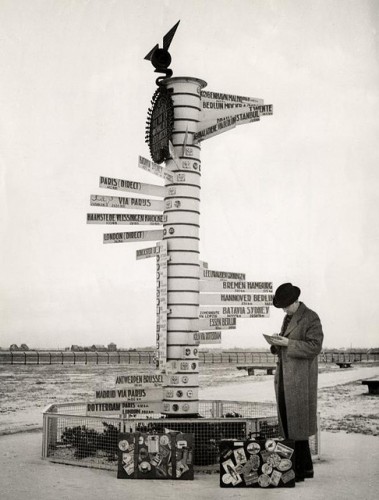Whether or not the power outage that caused British Airways to cancel all flights from London’s Heathrow and Gatwick airport last weekend was caused by a worker pulling the wrong plug, the airline is looking at perhaps $100 million in compensation payouts to thousands of passengers whose travelers were disrupted by the snafu.
While acknowledging that it may take “a little longer than normal to process all of the payments,” due to the volume of customers affected, on its website British Airlines is assuring passengers whose plans were put into disarray by the outage that it will comply with European Union Regulation 261/2004.
The rule outlines the compensation airlines must pay passengers for flights that are delayed or canceled and covers scheduled flights to or from airports in EU countries (as well as Iceland, Norway, Switzerland and some other non-EU regions) as well as flights to and from the EU purchased on U.S. carriers but operated by a EU carrier.
“It’s who you’re flying not where you’re buying,” notes George Hobica of Airfarewatchdog.com.
“If it’s within the airlines’ reasonable control, then compensation kicks in, which can max out at 600 euros,” said Hobica, “Getting paid is another thing, and can involve paperwork and waiting or negotiating, which is why there are a half dozen firms that will do the work for you, for a cut of the money owed.”
But at least those passengers have the law on their side.
On US, Canadian, Middle Eastern, or other non-Euro airline flights that are delayed or canceled due to IT outages, mechanical issues, crew delays or other issues within an airline’s control, passengers are legally due “zilch, nada, nothing. Nothing mandated by law” said Hobica,
That doesn’t mean passengers always get nothing, though.
Policies outlining what services are provided to a customer waiting in the airport vary by airline and are contained in their contracts of carriage, advises consumer organization Flyersrights, noting that the contracts of carriage generally leave it to the airline’s discretion to distribute meal vouchers and hotel accommodations.
Delta Air Lines outlines its policies on situations such as delays, cancellations, diversions and bumped passengers in its Customer Commitment document.
For example, the airline promises to “provide hotel accommodations at Delta contracted facilities, based on availability, if you are inconvenienced overnight while away from your home or destination due to a delay, misconnect or cancellation within Delta’s control.”
In August 2016, the carrier went the extra step of offering $200 in travel vouchers to customers whose flights were cancelled or who were delayed by more than three hours due to a system wide IT incident.
United Airlines spokeswoman Maddie King said the company strives to provide customers with flexible travel options when there are unanticipated interruptions to operations.
“We actively assist in rebooking customers and often provide compensation for customers who experience extensive delays that are within our control,” said King, “During severe interruptions we will provide customers with a travel waiver to change their flights at no cost. (United’s policies on flight delays and cancellations are posted here.)
And JetBlue’s Customer Bill of Rights outlines, in perhaps the industry’s most straightforward language, what customers can expect from the airline “when things do not go as planned,” including specific credit amounts to be issued for cancellations and delays.
On its website, the U.S. Department of Transportation confirms that “for domestic itineraries, airlines are not required to compensate passengers whose flights are delayed or canceled,” but does note a few situations that are covered by laws, including situations involving involuntary bumping of passengers, in which case required compensation can reach 400 percent of a one-way fare, but not more than $1,350.
As result of the recent United Airlines ‘incident’ involving a man being dragged of a flight in an involuntary bumping situation, United Airlines has issued policy changes which include the promise to offer passengers up to $10,000 to voluntary give up their seats in an effort to avoid having future overbooked flight situations.
Likewise, Delta has stated that it will offer up to $9,950 to passengers who volunteer to give up their seats on overbooked flights, said Zach Honig, editor at ThePointsGuy.com, “Though I wouldn’t be surprised if we never hear of the airline paying out compensation approaching that amount. Chances are enough travelers will volunteer long before the compensation offer gets well into the thousands.”
(My story about airline compensation for ‘inconvenienced’ passengers first appeared on NBC News.
